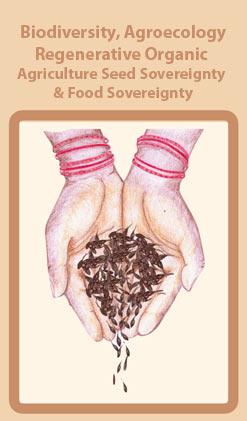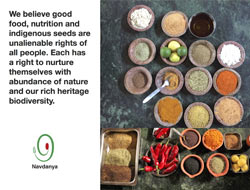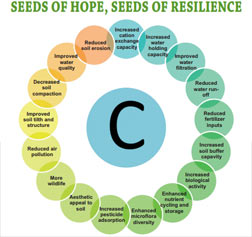Organic farming does not use pesticides and fertilizers. Instead it relies on organic manure because it strives for sustainability, enhancement of soil fertility and biological diversity. The budget presented by Finance Minister Arun Jaitley on 29 February announced that 500,000 farm ponds and dug wells in rain fed areas and 1 million compost pits for production of organic manure would be taken up under the National Rural Employment Guarantee Act of 2005. This was a boon to India's organic farmers.
Prime Minister Narendra Modi has encouraged other states to follow the Sikkim Model of organic farming. Modi observed that when the idea of organic farming was introduced a decade ago, most people opposed it. But Sikkim farmers have shown the way: In Sikkim, 75,000 acres of farmland have been devoted to organic farming, where farmers earlier had used synthetic fertilizers. Activist Vandana Shiva acknowledges that organic farming is a solution to pesticide and fertilizer-laden farming promoted since the "Green Revolution" of the 1960s, and which, she says, leads to environmental and social costs of $1.2 trillion a year.
Farmers have used medicinal leaves and cow urine to repel pests. In addition, the soil is nourished by using composted cow manure, combined with other organic materials. For colder months, plastic is used to cover the fields and create a greenhouse. The plastic traps the heat and moisture and sprinklers are fitted for irrigation. The rewards from organic farming aren't just monetary, says Lepcha, a farmer in Lower Nandok, who adopted organic and natural cultivation 20 years ago. He observed, "This field has given enough of the best-quality food for my family and enabled me to provide higher education for three of my children. We all are in good health and stamina. I don't remember when we last purchased medicines."
S. Anbalagan, executive director of the Sikkim Organic Mission, recalls that, "the start was not smooth; we struggled to provide farmers required knowledge and infrastructure." Only after the state banned the use of fertilizers and pesticides did the farmers fully resort to organic farming.
In the early years, crop yields fell after conventional fertilizers and chemicals were not used. However, after a few seasons the yields increased as the fertility of the soil improved. These days, Lepcha, like other farmers, earns more than Rs 400,000 a year. The reason for such a return is that organic farming has very low input costs; the only requisites are readily available on the farm. This, combined with high yields, increases the revenues, reduces the costs and thus increases the profit margins.
Read more


















